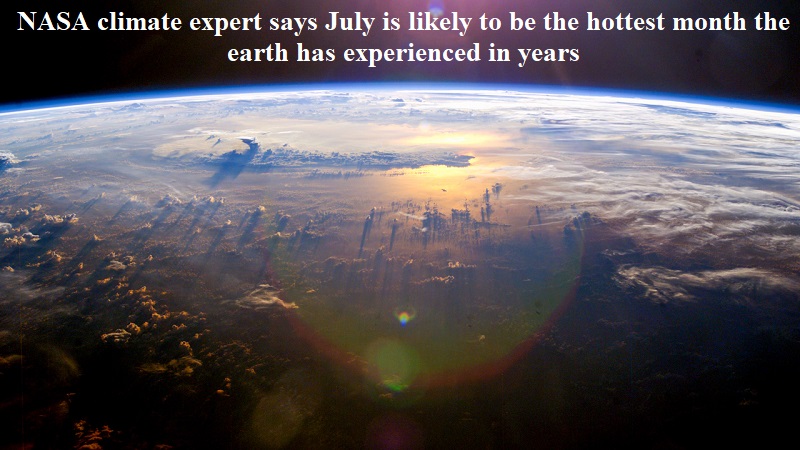
According to Gavin Schmidt, director of NASA’s Goddard Institute for Space Studies, July is expected to be the hottest month the Earth has experienced in hundreds, possibly thousands, of years. This announcement was made during a meeting at NASA’s Washington headquarters, attended by agency climate experts, NASA’s administrator Bill Nelson, and senior climate adviser Kate Calvin. The ongoing climate crisis has led to persistent heatwaves scorching parts of the US South, and extreme weather events, including deadly floods and Canadian wildfire smoke, have highlighted the urgent need for climate action.
NASA’s global temperature analysis indicated that June was the hottest month on record, and Schmidt pointed out that while the observed changes are shocking, they are not surprising to scientists. Over the past four decades, temperatures have continuously increased, leading to unprecedented global changes.
Schmidt’s calculations suggest that Earth has a 50% chance of setting a new temperature record in 2023, while other models project an 80% chance. Scientists anticipate that 2024 will be even hotter due to the El Niño weather pattern, known to boost global temperatures, which may peak towards the year’s end. The last significant El Niño event from 2014 to 2016 resulted in successive global temperature records, making 2016 the hottest year on record.
During the meeting, experts expressed alarm about the changes Earth is experiencing, explicitly linking them to greenhouse-gas emissions. While not explicitly naming fossil fuels as the major source of emissions, they stressed that human activity, particularly greenhouse gas emissions, is unequivocally responsible for the planet’s warming.
NASA showcased various climate-focused initiatives aimed at helping governments mitigate the climate crisis and prepare for its impacts. These include the Earth Information Centre, providing real-time climate data from NASA’s 25 satellites, tracking environmental changes, air pollution, methane emissions, and tropical cyclones and hurricanes. The agency is also conducting research to reduce planet-warming pollution, such as exploring lower-carbon forms of air travel.
Despite NASA’s efforts, some right-wing lawmakers are attempting to reduce funding for climate-related projects, including those undertaken by NASA. However, Karen St Germain, Earth Science Division Director, emphasized that NASA aims not only to accelerate scientific discovery but also to ensure that new research supports climate preparedness and informs decision-making at various levels. NASA’s goal is to provide scientific information and understanding to benefit the public, from individual farmers assessing their fields to global leaders making decisions that impact the world. As the climate crisis intensifies, NASA’s efforts to disseminate crucial data and insights play a crucial role in addressing the challenges posed by the rapidly changing climate.

Post Your Comments